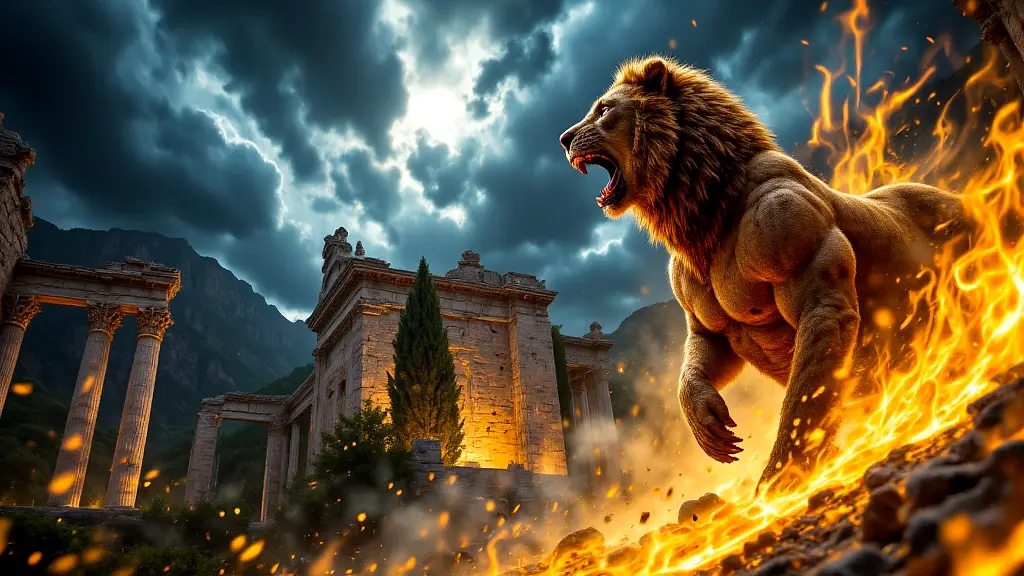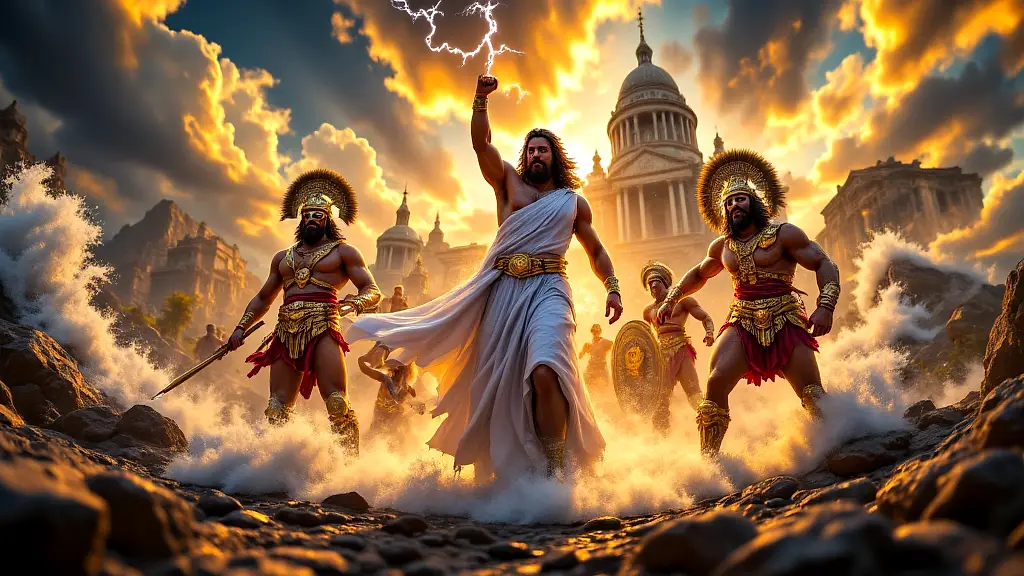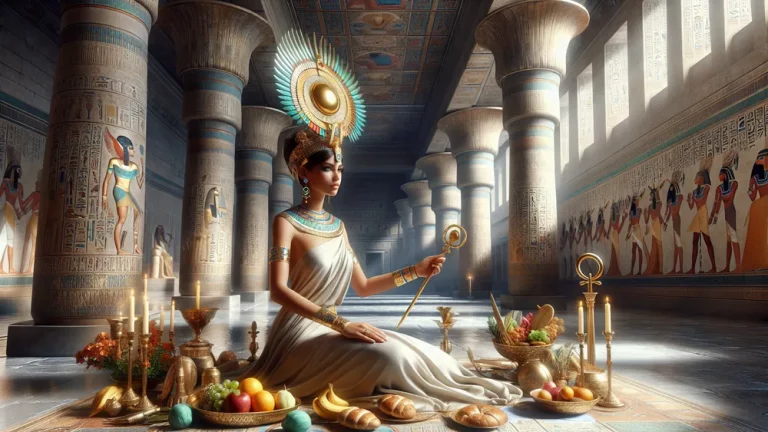The Most Famous Tales From Greek Mythology You Should Know
Greek mythology is more than just stories. It was central to ancient Greek life, helping people explain the world, right and wrong, and even nature. Think about living in a place where thunder meant Zeus was angry, a good harvest came from Demeter’s kindness, and heroes could almost become gods. These tales were written down in The Iliad, The Odyssey, and Hesiod’s Theogony.
Key Points:
- Greek myths explain the world, right and wrong, and nature through stories about gods and heroes.
- The universe started with Chaos, then came Gaia, Tartarus, and other first gods before the Olympians took over.
- Zeus beat the Titans in a big war, then ruled with other Olympians who each had their own jobs like the sea or love.
- Heroes like Heracles, Perseus, and Theseus did amazing things but often had sad endings because of their mistakes.
- The Underworld had three parts: Tartarus for punishment, Elysium for heroes, and a middle place for regular people.
- The Trojan War began when Paris picked Aphrodite as the fairest, leading to Helen being taken and a 10-year war.
- Myths like Persephone’s kidnapping explain why seasons change, while others like Sisyphus teach about endless struggle.
They were not just for fun – they also explained religion, like how the world began or why bad things happen. Today, we still see their impact. Phrases like “Herculean task” or ideas like the “Oedipus complex” come from these myths. Even movies use these stories. As we explore creation, gods, and heroes, you’ll notice how they ask big questions about power, fate, and where humans fit in the universe.
Most Famous Tales From The Greek Mythology: Overview and Key Facts
| Myth Category | Key Figures/Events | Significance | Variations/Notes |
|---|---|---|---|
| Creation Stories | Chaos, Gaia, Uranus, Cronus, Zeus | Describes how the universe began and how the Olympian gods took power. | Hesiod’s Theogony is the main source, but other versions like Orphic myths exist. |
| Titanomachy | Titans vs. Olympians, Cyclopes making Zeus’ lightning | Zeus defeats Cronus, starting the rule of the Olympians. | Some stories say Prometheus helped Zeus win. |
| Pandora’s Box | Pandora, Zeus, Epimetheus | Explains why humans suffer but also have hope. | Hesiod says Zeus sent Pandora as punishment, but Aesop blames curiosity. |
| Olympian Gods | Zeus (sky), Hera (marriage), Poseidon (sea), etc. | The 12 main gods controlled nature and human life. | Sometimes Dionysus replaces Hestia as the twelfth god. |
| Heracles’ Labors | Nemean Lion, Hydra, Cerberus, etc. | Challenges that prove Heracles’ strength, leading to him becoming a god. | Different sources list the labors in different orders. |
| Perseus and Medusa | Athena’s shield, Hermes‘ sandals, cutting off Medusa’s head | A hero’s adventure with help from gods and smart tactics. | Some say Medusa was born a monster, others say Athena cursed her. |
| Theseus’ Labyrinth | Minotaur, Ariadne’s thread, Theseus leaving Ariadne | A story about trust and Athenian pride. | A few versions say Dionysus took Ariadne instead. |
| Orpheus and Eurydice | Orpheus’ music, Hades‘ rule, Eurydice dying again | A sad love story about what happens when you doubt. | Rare versions say Orpheus actually saved Eurydice. |
| Oedipus’ Prophecy | Oracle of Delphi, killing his father, marrying his mother | Asks whether fate or our choices decide our lives. | Sophocles’ Oedipus Rex is the most famous version. |
| Trojan War | Achilles, Hector, Paris, Helen, the Trojan Horse | Shows how gods influenced human wars, shaping Greek history. | Homer’s Iliad covers only part of the war. |
| Underworld Myths | Hades, Persephone, Sisyphus, Tartarus, Elysium | Reveals Greek beliefs about death and the afterlife. | Persephone’s abduction has different details in Sicily and Eleusis. |
How the Universe Began: Greek Creation Stories
To get Greek mythology, start where the ancient Greeks did. They began with how the universe started.
Chaos and the First Gods
Before any gods or humans existed, there was Chaos – an empty space where anything could form. From this nothingness, the first powerful beings appeared by self-creation. These forces became the basic structure of the world:
- Gaia (Earth): The living ground that created mountains and seas on its own.
- Tartarus (the Abyss): A dark pit below Earth that later held defeated Titans, different from Hades’ underworld.
- Eros (Procreation): Not the later cupid, but a powerful force that made things join together.
- Nyx (Night) and Erebus (Darkness): They produced lighter elements like Day and Air, bringing balance.
Some stories, like the Orphic tradition, say a silver egg appeared from Chaos and hatched Phanes the creator. But Hesiod’s Theogony is the most famous version. These beings weren’t just gods – they formed the world’s foundation before the Titans rose to power.
The first things to come from nothingness were powerful forces like Earth, the Abyss, and Night, which built the world before gods existed.
The Titan War and Zeus’ Punishment
The War of the Titans was a huge ten-year battle between gods and Titans. It started when Zeus gathered his brothers and sisters against their father Cronus, who had swallowed them at birth to stop them from overthrowing him. With help from the Cyclopes (who made his lightning bolts) and the hundred-handed giants, Zeus freed his siblings and threw the defeated Titans into Tartarus.
Some stories, like those by Aeschylus, say Prometheus first helped Zeus before they later fought.
This change in power put the Olympians in charge, but it had bad consequences for humans:
- Pandora’s Creation: Zeus told Hephaestus to make Pandora as a “gift” for humans, but really it was punishment for Prometheus stealing fire
- The Jar’s Contents: When opened, it let out all bad things like sickness and war, though hope stayed inside – some say this was meant to comfort humans
- Divine Retribution: This began Zeus’ habit of punishing both gods (like Prometheus’ liver) and humans (like Deucalion’s flood) who went against him
The war’s results created the main conflict in Greek myths: the unstable relationship between godly power and human suffering. While Hesiod says this was fair, other stories like the Orphic hymns show the gods had more complicated power struggles.
The Olympian Gods: Who Rules What
After the Titans lost, Mount Olympus became home to a new group of powerful gods. These twelve main Olympians each controlled different parts of the world.
The 12 Olympians
The Olympians were the main group of Greek gods who lived on Mount Olympus. Their home was similar to ancient Greek society’s social order. Unlike the older gods who represented natural elements, these twelve controlled specific areas of human life and nature. Zeus ruled as their king.
While the group sometimes changed by region or time period, these were the most commonly worshipped Olympians:
| God/Goddess | Domain | Primary Symbol |
|---|---|---|
| Zeus | Sky, Thunder, Kingship | Lightning bolt, Eagle |
| Hera | Marriage, Women | Peacock, Pomegranate |
| Poseidon | Sea, Earthquakes | Trident, Horse |
| Demeter | Agriculture, Harvest | Wheat sheaf, Torch |
| Athena | Wisdom, Warfare | Owl, Olive tree |
| Apollo | Sun, Music, Prophecy | Lyre, Laurel wreath |
| Artemis | Moon, Hunting | Bow, Deer |
| Ares | War | Spear, Vulture |
| Aphrodite | Love, Beauty | Dove, Mirror |
| Hephaestus | Fire, Metalworking | Hammer, Anvil |
| Hermes | Messengers, Commerce | Caduceus, Winged sandals |
| Dionysus | Wine, Festivals | Grapevine, Thyrsus |
These gods represented Greek values and important parts of ancient life. However, some like Hestia (goddess of the hearth) were sometimes included before Dionysus took her place in later traditions. Their family relationships appeared in many stories, showing alliances, rivalries, and complicated dynamics.
Heroes Facing Tough Challenges
While the Olympians ruled from their home on Mount Olympus, their human children and chosen ones faced difficult tests. These famous heroes became known for completing very hard tasks, though they often had serious weaknesses that made their lives harder. Their stories showed what humans could achieve, even when facing nearly impossible challenges.
Heracles and His Twelve Labors
After Hera made him go mad, Heracles accidentally killed his own family. The Delphic oracle then ordered his famous punishment: twelve extremely difficult tasks for King Eurystheus. These tasks tested more than strength – they were challenges of intelligence and stamina meant to be deadly. The first labor was killing the Nemean Lion, which had skin that couldn’t be pierced, so Heracles had to strangle it.

The final task was bringing Cerberus back from the Underworld.
Some of the most important labors show how Greeks valued clever solutions:
- Killing the nine-headed Hydra by burning the necks so they wouldn’t grow back
- Catching the Golden Hind of Artemis that could outrun arrows
- Getting the girdle of Hippolyta by negotiating with Amazons
- Cleaning the Augean stables by redirecting rivers to wash them
- Taking the apples of the Hesperides with help from Atlas
- Bringing Cerberus from the Underworld as the hardest test of bravery
When Heracles finished these tasks, he became the first mortal to turn into a god. But this victory had a dark side. The poison from the Hydra that he used on his arrows later caused his death when his wife Deianeira gave him a poisoned shirt.
Some stories say this painful death cleansed his human mistakes, making his transformation into a god possible – a complicated ending for Greece’s most famous hero.
Perseus: Magic Gear and Monster Fights
Perseus had a dangerous task – to cut off Medusa‘s head. The gods gave him special items to help: Athena provided a shiny shield that let him see reflections to avoid Medusa’s deadly stare, Hermes gave him winged sandals for flying, and Hades let him borrow an invisibility cap. This shows that Greek heroes needed help from gods as much as their own courage.
When Perseus cut off Medusa’s head, it became one of mythology’s most famous moments. Some stories say Pegasus the winged horse came from her neck, while others tell how Perseus used the head as a weapon on his way home. Perseus also saved Andromeda from a sea monster called Cetus. She was chained to a rock as a sacrifice because her mother Cassiopeia had angered the gods with her arrogance.

This rescue made Perseus both a monster fighter and a future king when he married Andromeda. Their family line, called the Perseid dynasty, would later include the famous hero Heracles, linking two of Greece’s most important hero families.
Perseus used gifts from the gods to defeat Medusa and rescue Andromeda, starting a famous family line that included Heracles.
Theseus: The Labyrinth and a Broken Promise
Theseus‘ fight with the Minotaur wasn’t only about killing a monster. It was meant to stop Athens’ terrible payment to Crete. The young prince only had Ariadne‘s thread to help him find his way out of Daedalus‘ Labyrinth, which was so confusing that even its creator couldn’t escape without help. The Minotaur, which came from Queen Pasiphaë‘s wrong desire, stood for Crete’s cruel rule over Athens.
Killing it was both a real victory and an important symbol. But after winning, Theseus made serious mistakes. First he left Ariadne on Naxos – some stories say by accident, others say the gods made him do it. Then he forgot to change his ship’s black sails, which made his father Aegeus kill himself.
These failures affected Theseus’ rule later, ending with him being forced to leave Athens after abandoning another lover, Antiope. The stories show that even though Theseus did great things, his broken promises caused his downfall, like many Greek heroes who were brought low by their own faults.
Orpheus in the Underworld: A Love Story Gone Wrong
Orpheus‘ journey tells one of mythology’s most emotional stories. He went to the Underworld to bring back his wife Eurydice, and played the lyre so beautifully that it moved Hades, who normally never showed mercy. The gods of the Underworld agreed to let Eurydice go, but gave one rule: Orpheus couldn’t look back at her until they reached the surface.
This test wasn’t about strength, but about whether Orpheus could keep trusting without seeing proof. Ancient writers disagree about why he turned around – maybe from love, maybe from doubt – but all agree this caused Eurydice to disappear immediately, dying a second time that was even sadder than the first. What happened next shows deeper meaning.
Orpheus’ music lost its happiness, and he eventually died when the Maenads tore him apart. Some stories say this happened because he shared secrets about the Underworld, others because he refused to love anyone after Eurydice. The story became important for religious groups that taught about life after death, with Eurydice’s second death showing that some mistakes can’t be fixed.
This idea about the cost of second chances appears in many later stories about love and loss.
Oedipus: A Prophecy That Ruined Everything
The Delphic Oracle‘s prediction that Oedipus would kill his father and marry his mother started one of mythology’s worst tragedies. Though he tried to escape it, everything Oedipus did actually made the prophecy come true. When he ran from Corinth, solved the Sphinx‘s riddle, and became king of Thebes, he was unknowingly following the curse.
The worst part came when he realized the man he killed years before was Laius (his real father), and his wife Jocasta was his mother. This meant he was both the hero who saved Thebes and the criminal who destroyed his own family. After the truth came out through the blind prophet Tiresias and the city’s investigation, terrible things happened quickly.
Jocasta killed herself, and Oedipus stabbed his eyes with her brooch because he couldn’t bear to see the truth. Their children later suffered from the same family curse. In Sophocles‘ version, the very things that made Oedipus great – his intelligence, strength, and leadership – caused his downfall.
This became the perfect example of how people can’t escape their fate, no matter how hard they try. Other stories tell how Oedipus eventually died at Colonus, where people later honored him as a protective spirit despite his terrible crimes.
The Underworld: How the Dead Are Judged
After seeing the sad stories of these myth characters, we now go to the Greek Underworld, the place where everyone goes after death.
Hades’ Three Realms: Punishment, Paradise, and the In-Between
The Greek Underworld divided dead souls into three main areas based on how they lived. Tartarus was for punishment, where powerful beings like the Titans were kept chained forever, and people who broke oaths faced never-ending penalties. Elysium gave special rewards to heroes and good people, with perfect weather all the time and endless food.
Separating these two places was the Asphodel Meadows, a large middle area where normal people existed without memories or feelings, just moving without purpose among pale flowers. Key features of each realm:

- Tartarus
- Elysium
- Only for special religious followers
- Some souls might be reborn from here
- Had its own light sources unlike the rest of the Underworld
- Asphodel Meadows
- Where most ordinary people went after death
- Souls lost all personal identity
- Acted as a neutral zone in the afterlife
This system showed Greek beliefs about justice – heroes got rewards, arrogant people suffered forever, and average people faded into nothing.
Eventually, Roman authors would create their own versions of the afterlife, but the Greek ideas remained powerful because they made sense about how people think justice should work, even after death.
The Greek afterlife sorted souls into three places—heroes enjoyed Elysium, bad people suffered in Tartarus, and regular folks wandered without memories in the Asphodel Meadows.
Persephone and Why Seasons Change
Hades came up from underground in his chariot and took Persephone, which changed how nature worked. Demeter, Persephone’s mother, was so sad that she caused the first winter. Crops withered and died until she learned from Helios, the sun god who sees everything, what happened to her daughter. The land stopped growing food not because of normal weather changes, but because a mother refused to let plants grow while her child was missing.
This story didn’t just explain seasons – it showed how the ancient Greeks saw how easily life could be disrupted, and how closely the upper world and underworld were connected. Later they agreed that Persephone would spend part of each year with Hades because she ate six pomegranate seeds (some stories say four). This became an important rule that created the farming calendar. When Persephone comes back up, Demeter’s happiness makes spring flowers grow.
When she goes back down, the earth becomes cold and lifeless again. Secret religious ceremonies called the Eleusinian Mysteries used this story to teach that death and new life are as normal as the changing seasons. Even the red juice of the pomegranate showed both life and the fact that everything eventually dies.

Sisyphus: The Man Who Couldn’t Win
Sisyphus, the tricky king of Corinth, beat death twice. First he trapped Thanatos in chains, which made humans immortal for a while. Then he fooled Persephone into letting him return to the living world. However, Zeus was angry about these tricks against the gods, so he created the perfect punishment. Sisyphus had to push a huge rock up a hill in Tartarus forever.
Every time he almost reached the top, the rock would roll back down. This wasn’t just hard physical work – it caused mental suffering too. His cleverness became his punishment as he kept doing the same useless task over and over. Eventually, philosophers would find deep meaning in his struggle.
But the original myth just showed one thing clearly: there are some rules even the cleverest human must never break.
The Trojan War: Gods Playing with Mortals
Let’s look at one of mythology’s most famous wars – the Trojan War. This ten-year conflict happened when gods fought directly alongside humans. The famous fights and gods interfering showed what heroes could do against fate.
The Golden Apple and Helen’s Kidnapping
The Trojan War began because of trouble at a wedding. Eris, the goddess of discord who wasn’t invited, threw a golden apple marked with “to the fairest” near Hera, Athena, and Aphrodite. Paris, a Trojan prince, had to choose between them.
Each goddess made powerful offers: Hera promised rule over kingdoms, Athena gave the chance to be the wisest leader, but Aphrodite offered the most beautiful woman in the world – Helen of Sparta. His choice started a war that lasted ten years, since Helen was already married to Menelaus, making this essentially a forced taking. Some ancient stories say Helen went to Troy willingly, while others claim she was taken by force.
There’s even a version where Zeus sent a fake Helen to Troy while the real one stayed in Egypt. Either way, the results were the same. Because of Aphrodite’s actions, all of Helen’s former suitors had to honor their promise to protect her marriage, which made Greece’s best warriors prepare for war. The golden apple shows how arguments between gods could change human history.
Paris’s decision doomed his city to destruction, all because of a fight that started at a wedding.
Achilles: The Almost-Invincible Hero
Achilles’ mother Thetis tried to make him immortal by dipping him in the River Styx when he was a baby. But the heel she held him by stayed unprotected. The centaur Chiron trained him in fighting and healing, making him Greece’s strongest warrior at Troy. His anger changed battles by itself.
But his special protection came with a difficult choice: live a long, quiet life or die young and be remembered forever. When Patroclus died – whether he was family, lover, or closest friend depends on the story – this made Achilles fight harder. He had stopped fighting because of an argument with Agamemnon, but returned to battle full of grief and rage.
He killed so many Trojans that the river god Scamander attacked him. His fight with Hector at Troy’s gates was famous. But Paris’s arrow later hit his weak heel, which caused his death just as his mother had feared.
FAQs
1. How many Greek myths exist?
Greek myths exist in hundreds, with regional variations shaping their retellings.
2. What’s the difference between Greek and Roman myths?
The difference between Greek and Roman myths lies in their cultural framing – Roman myths repurposed Greek deities with new names (e.g., Zeus as Jupiter) and prioritized themes of empire over Greek explorations of human nature.
3. Do these myths teach moral lessons?
These myths teach moral lessons by warning against hubris, rewarding virtue, and illustrating the consequences of defying divine will.
4. Where can I read original Greek myths?
Original Greek myths can be read in foundational texts like Hesiod’s Theogony, Homer’s Iliad, and Apollodorus’ Bibliotheca.







